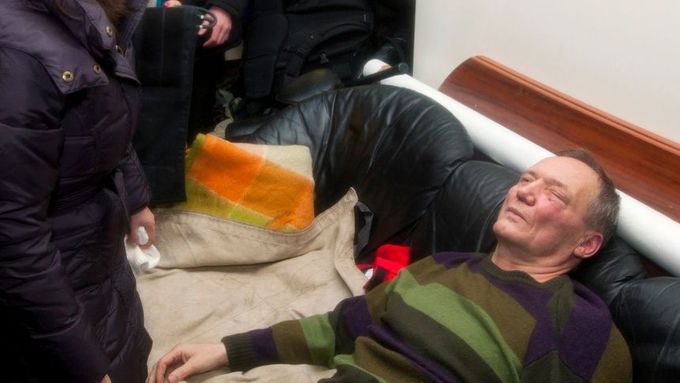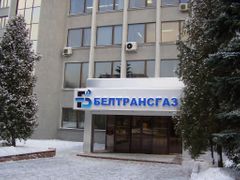Minsk (from a special correspondent) - The Nekrasovova street, a few tram stops from the center of the Belarusian capital. Hidden among Soviet-era panel-houses, there is a modern building - the seat of the Beltransgaz company, whose main business is to transit Russian gas to Europe.
The value of its assets is estimated at USD 5 billion.
In addition to probably being the most known Belarusian company, Beltransgaz is one of the key players in the "Gas Wars" - dramatic negotiations between Russia, Belarus and Ukraine about gas prices and transport conditions that usually take place in the days and weeks around the New Year. In the last years, these disputes have been appearing with a rather stubborn regularity.
Read more: Czech energy security under influence of Russian Lukoil
Read more: Czechs to build new pipelines amid gas crisis fears
Or, as Belarusian president Lukashenko put it last week: "While most people enjoy their holidays in the days before the New Year's Eve, we debate with Moscow about what will be."
The term "gas wars", too, was coined by the Belarusian strongman.
The Russian gas giant Gazprom owns 50 percent of the Beltransgaz' shares. The rest remains in the hands of the Belarusian state.
Russia exports one fifth of its gas via Belarus, for example to Poland and Germany.
Read more: Unipetrol exec: Russian oil easily replaceable
Beltransgaz buys Russian gas with a discounted price. While most of the customers pay USD 250 for 1,000 cubic meters, Belarus pays only USD 184.
During a recent meeting in Moscow, the Russian government offered Lukashenko a deal that would abolish the customs on Russian gas exports to Belarus. This would mean an additional USD 4 billion for Belarus every year.
Does this mean that the gas wars will be avoided this winter? The negotiations are still in progress. "Let's hope for the best, but prepare for the worst," the spokesman of Gazprom, Sergej Kuprjanov, rather inconclusively said.
Belarusian model
In addition to the discounted gas prices, the major part of Belarusian exports head to Russia.
All this is intended to help the struggling Belarusian economy, which is centrally planned to the degree unseen anywhere in Europe.
Some even speak of "the Belarusian model" - it is estimated that between 70 and 80 percent of the economy is owned by the state, and Lukashenko is known to be extremely distrustful towards the private sector. State companies are being told by the government what and how to produce.
Lukashenko is backed by army, police and secret services. The opposition says the Lukashenko regime is a dictatorship whose short-sighted policies are leading the country towards bankruptcy.
Read more: West cheats and beats us in PR, says Russian insider
Election riots
On Sunday 19 December, Alexander Lukashenko probably defended his grasp on the country by being reelected as Belarusian president. According to the first official estimates, 79.1 percent voted for the incumbent, with the most popular opposition candidates, Vladimir Neklyaev and Andrei Sannikov receiving only a tiny portion of the votes. The turnout was allegedly more than 90 percent.
The opposition had announced before the poll that the election was not going to be fair and the results would be manipulated so that Lukashenko win decisively in the first round. After the election, the opposition called the results "comic".
On Sunday evening, several tens of thousands of people gathered in the October square in the center of Minsk, within eyeshot of the president's seat, to protest the results.
Later in the night, security forces used unprecedented force against the opposition, in spite of the OSCE observers and hundreds of foreign journalists in the capital. Tens of protesters were injured, hundreds were arrested, including six out of nine opposition candidates.
Vladimir Neklyaev was beaten so badly that he had to be treated in a hospital.
Reuters informed that police dispersed a crowd of roughly 200 people who were trying to enter the main square in Minsk.
AP said that in the evening, protesters tried to storm the seat of government and parliament, but retreated after learning that security forces were inside the building.
Although the opposition candidates had been allowed to campaign with greater freedom than in the past years, it appears that the regime still firmly prevents any political change.
OSCE is expected to give a negative opinion on the poll.

